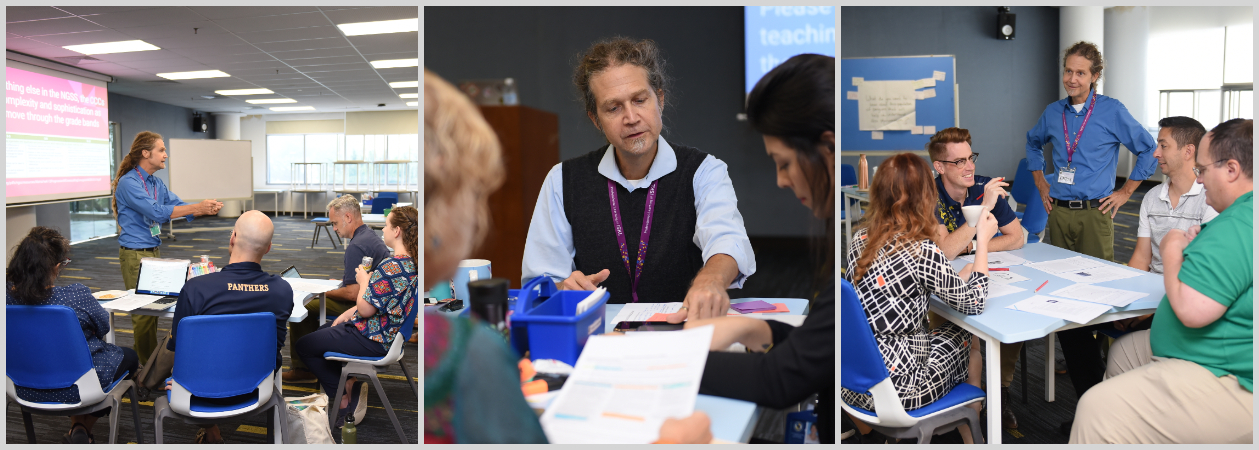Chris Charnitiski has just wrapped up a four-day professional development training program with ISKL’s Science Faculty. He shares his insights with Panther Post on the experience and benefits of transitioning to the new AERO Next Generation Science Standards.
Professional Development in the AERO NGSS
By Chris Charnitski
If you’re a parent at ISKL, keep asking your students, “What did you do in science class today?” The answer to this question will change more and more over the weeks, months and years to come. ISKL is at the vanguard of innovation in so many ways – and science education is no exception. The teachers at ISKL have been transitioning to the exciting new AERO Next Generation Science Standards (the NGSS) and as a result, teaching and learning is happening differently.
For the past week I have had the privilege of working with the exceptional teachers, teacher leaders and leadership at ISKL to transform science education in the classrooms. It was immediately clear to me that the school has cultivated and encouraged a community of educators who care deeply about the education they provide to their students – and who have continued to challenge their students to think deeply about science concepts. My name is Chris Charnitski and I work at international schools around the world helping educators and schools transition to the Next Generation Science Standards (NGSS).
The AERO Next Generation Science Standards are a transformative set of science standards that fundamentally change the way students learn and the way teachers teach. Unlike previous science standards that focused only on content, every NGSS has embedded in it a Science and Engineering Practice (the things that scientists and engineers do) as well as a Crosscutting Concept. The result is that any time students are engaged in learning about science they will also be doing the things that scientists and engineers do and thinking in ways that scientists and engineers think. In short, they will be learning science the same way they learn sports – by doing it!
As we know – children of all ages are naturally curious. Previous science instruction has sometimes failed to nurture this curiosity in later grades. All instruction in the NGSS is anchored in investigation of phenomena. Instead of learning about the layers of the atmosphere, for example, students are trying to figure out where wind comes from. Instead of learning that all living things are made of atoms, they will wonder where dead things go when they die. Students are presented with phenomena about the world around them and they are invited to observe, wonder, ask questions and investigate. This shifts the coherence of learning experiences from the teacher to the student. While content students learn across the years has changed little, students move from ‘learning about’ content to ‘figuring out’ the key science concepts of a rigorous science program.
When we construct our own understanding of the natural and man-made world, learning has context – and memorization is no longer relevant or necessary. Our new understandings become foundations upon which we can build new knowledge.
I look forward to continuing this journey with ISKL and their teachers and teacher leaders. Students at ISKL are so lucky to have such deeply knowledgeable and dedicated teachers who work so hard to keep them curious, wondering and making sense of the awe-inspiring world around them – and I am fortunate to be able to work with their teachers in making this exciting and challenging transition a reality.

About Chris Charnitski
Chris Charnitski has been a high school life science teacher for the last 20 years – the first ten in Fairfax County, Virginia and the last ten years in Ecuador, Myanmar and in Oman at The American International School of Muscat.
Mr. Charnitski co-facilitates the NGSS Introduction for Educators at the NGSS Introduction for Educators at the AERO Summer Institute in Virginia and is currently serving on Achieve’s Peer Review Panel for Science. Mr. Charnitski participated in writing the AERO Life Science Standards and is a National Board Certified Teacher. He has presented at a number of different conferences over the years including AERO and JOSTI.

